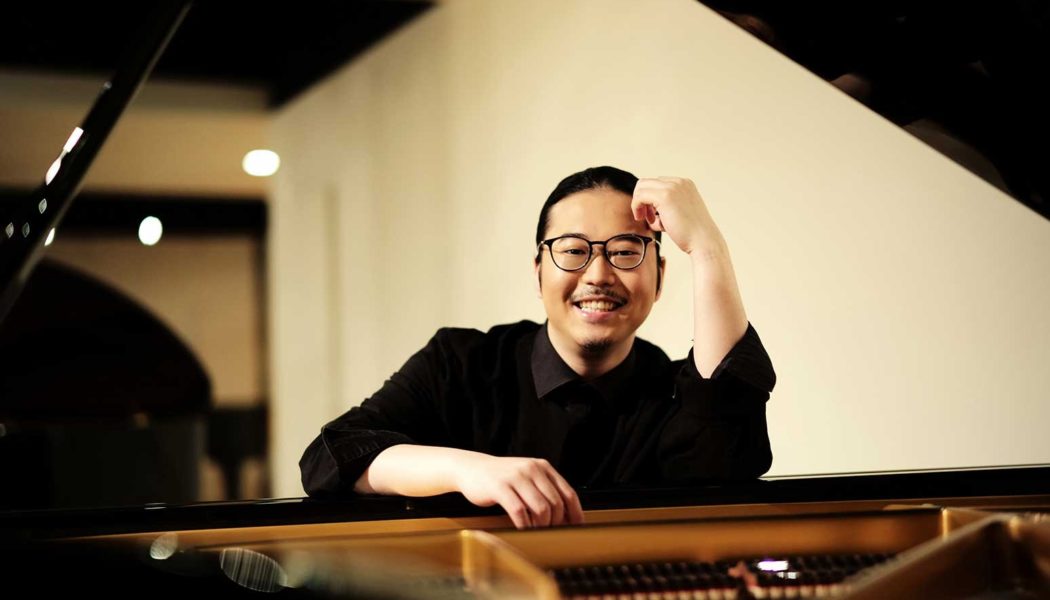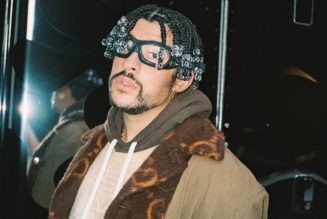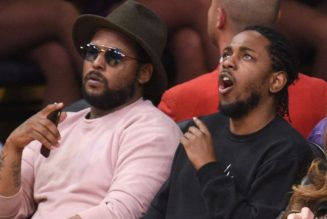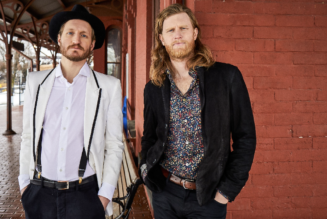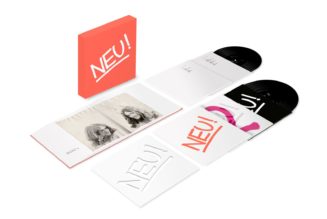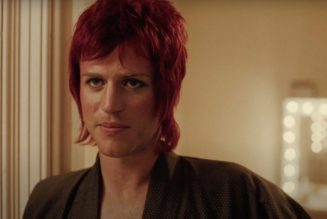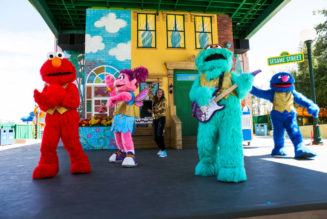
Sado: There are mainly two ways for me to enjoy music. Live performances are overwhelmingly the best way to appreciate the wonder of a piece. Whether it’s a piano being played or an entire orchestra in a music hall, it’s awe-inspiring to experience the air vibrating in front of me. But I also enjoy listening to recorded music, such as on a record or a digital format, because it gives a feeling of reconnecting with the past through that sound source. Maybe I wasn’t alive when it was made, but a recording can give a sense of the sound and actually being there. There is meaning in just being able to reconnect; whether the medium is digital or analog is fine with me.
Sorita: The digital evolution of classical music has created a way for people who couldn’t be at a live performance to “catch up” with the experience by watching or listening to it over a streaming service, for example.
It’s also a fact that digital technologies have made it easier for musicians like us to study and work. On the flip side, music albums don’t sell any more. I think we just have to accept that doing something new requires destroying something old. In that sense, I think we’re living at an exciting turning point in history.
Sado: With all the digital technologies we have nowadays, people can record sounds from everyday life at anytime, anywhere, or take just one piece out of a song, and manipulate sound as they see fit. That’s a wonderful thing, I think. It lowers the hurdles to more people broadening their knowledge of classical music just a little bit further, and gets them interested in eventually attending live performances. Listening to music is becoming less and less about being face-to-face with it, while sitting still, and I don’t think that’s a bad thing.
I bought this projector the other day that’s really powerful but amazingly compact—about the size of a tea canister. I could use it to, say, show some videos of Kyohei playing, and that way I could be talking with someone or doing something else and have that video and music on in the background. I think that style of music appreciation will become more mainstream, and actually, I think it will give much more value to the act of coming to a venue and enjoying music face-to-face. On that note, although COVID-19 is rapidly driving up demand for streaming services now, I think it will only make people better appreciate the value of a live performance.
Has your adoption of digital technologies affected your musical performances?
Sado: Digital technologies have of course made it much easier to edit recorded audio. In an orchestra performance, for instance, I can take out a flute that comes too far forward. It just makes for clean and easy cut-and-paste.
But ultimately, the real joy of music is how it all comes out in one take. In the analog days, recording one movement meant playing without any stopping for 15 minutes. That make-or-break nature of recording put continual pressure on the performer. That pressure is what made a piece well-known, what gave it value. But in the digital age, because it’s so easy to connect sounds together to make one moment of music, you can just do a second take if you mess up. While this has led to unblemished, perfect performances, there’s nothing ever exceptional about a recording now. I think that’s a big deal.
Prokofiev: Piano Concerto No. 3 is a piece performed by the both of you together with the Tonkünstler Orchestra, and is available on streaming services and video platforms. Word is that over the several days when the piece was being recorded in Vienna last fall, a tragic terrorist attack occurred that profoundly impacted the performers’ psychology and was reflected very emotionally in the recording.
Sorita: The first day was supposed to be a rehearsal, but we ended up just going ahead and recording the first movement. Then the terrorist attack happened that night. Because of that, everything from the second movement on, which was recorded the next day, has a very different feel to it. The town basically shut down from the night of the attack to the following day, and both myself and Yutaka completed the session on almost no sleep.
Sado: Despite that, everyone showed up at the studio on time the next morning. We were all glad that nobody was hurt, and we just decided to do the second movement as planned.
There was really a special aura surrounding that recording. It felt like we had been saved by sound. We wondered if we should do another take since it felt a little patchwork in places, but I think it turned out as something special.
Sorita: I always struggle to keep my attention focused when doing recordings. But at that time, there was this cohesion that all the performers felt, like we were all in the zone, and I could have maintained my concentration no matter how long it took. I felt there was an ongoing communication with Yutaka, the whole time the music was playing. It was just a fantastic recording. Later I listened to it again and thought, this will be a piece to remember.
Kyohei, you fully utilize things like social media and streaming services to promote your music. What promotional power do you think such tools have?
Sorita: People of my generation have become used to sharing large amounts of information in real time, so it’s a little easier for us to predict where trends are going and pick up on ideas.
I manage an online lounge called Solistiade where my orchestra gathers. We started it because we predicted that people would soon come to view music not as something performed by one person but by an ensemble, and as something that will enable us to branch out to others through communities, creating big social circles.
Sado: I have some involvement with the Hyogo Performing Arts Center, and for several years now it’s been talking about how it needs to more proactively promote itself on social media. But creating a new department in a public theater is a real challenge.
Orchestras overseas promote themselves quite differently. In Europe, orchestras will not just announce a performance on social media, they’ll use it to talk about the famous members they have and what those people are doing in their private lives. That might casually link to a program for one of their regular performances. They’re really clever about using social media. Thinking about that makes me realize how behind Japan’s classical music industry is.
Sorita: Artists nowadays have their own channels. I think we’re very rapidly getting to a point where people who can’t sell themselves won’t succeed. You can now put out an ad at the push of a button, and a single post can get you tens of thousands of views, so I think we’d be smart to make effective use of this phenomena.
Sado: I admire you for being able to think about that kind of thing despite already having your plate full with the piano. I know you practice a lot. There was nobody like you when I was in my 20s — I’m not talking about just your musical skill but also your ability to plan, your vision, your initiative. You bring so much passion to all the different things you do. Back then, I was an avid gamer who would collect all the different video game consoles, so I guess a love of electronics is something we both have in common (laughs).
Is there anything you want to try doing together in the future?
Sado: Personally, I want to play Rachmaninoff with Kyohei a million times. Beethoven, Prokofiev, and Chopin are all fine and good, but nothing beats Rachmaninoff’s Piano Concerto No. 3. It’s like how you can never get sick of eating curry and rice (laughs). The enjoyment of it never wears off, like listening to hard rock when I first got sucked into it in middle school.
Sorita: I would like Yutaka to watch me conduct. I don’t want to limit myself to just the keyboard. If he can listen to the sounds of when I’m actually conducting and give me critiques and feedback, I feel like it could help me move forward. Yutaka, you’re always welcome to join our orchestra (Japan National Orchestra, a.k.a. JNO), you know. I’d be grateful if you could join us and play the flute, the recorder, whatever (laughs).
Sado: I have to say, though, that special JNO orchestra Kyohei put together for the tour earlier this year, I didn’t imagine the orchestra would be that good. It was absolutely marvelous. I only played Haydn with them then, but next time I want to play the heck out of a really big piece.
(Editor’s Note: JNO is an orchestra led by Kyohei Sorita. It was formerly known as the MLM Double Quartet, which was started in 2018, and was renamed to the Japan National Orchestra in January 2021. Sorita established an orchestra management company in May. After the formation of the special orchestra, it held a kickoff tour from February to March 2021, with Sorita as soloist and Sado as conductor.)
–This interview by Kumiko Asaoka originally appeared on Billboard Japan.

